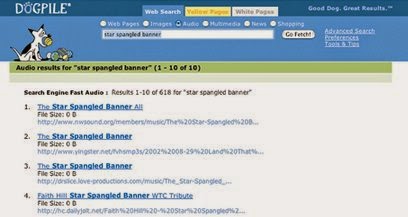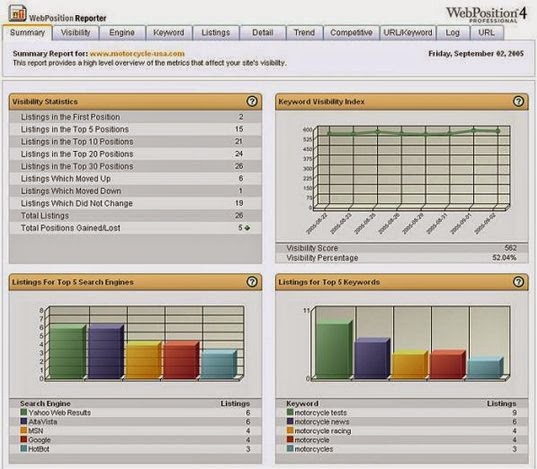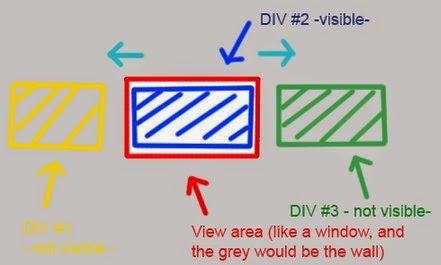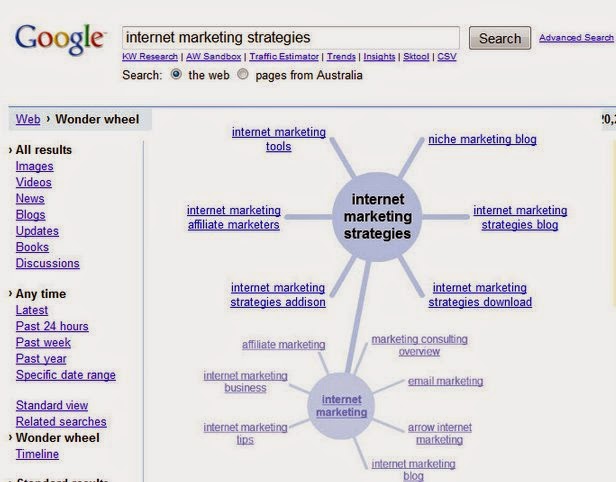Blog Categories
- Tips (6)
- Google Marketing News (4)
- SEO (14)
- Sponsorship (1)
- Social Media (2)
Keyword Research, how do you do it?
 |
| Altavista |
I am so glad those bad old days are behind us.
Going back a number of years I remember the day I discovered Google. At the time I was using Dogpile which is a known as a MetaCrawler. It gave me the top 10 results from a wide selection of search engines at the same time.
This was brilliant as you got a good range with some often similar results appearing in every engine.
Lycos, infoseek, Yahoo, ask etc. where engines from the 90's and early 2000's.
 |
| Dogpile Metacrawler |
One morning I was alerted to a new engine that gave better results. It caught my attention as when we were kids the older lad across the road once asked, 'what is the biggest number in the world?' and as a 7 or 8 year old boy (circa 1978) that was a tough question. He said it was 'agoogle' so when I saw this as a search engine immediately I had an affinity with it. I wonder if my old friend was a founder of Google! If you are reading this 'Mark Ashton' or 'choc' as you were more commonly known, you are a prophet or something.
 |
| Google the early days |
So now I have a new engine to work with, can I keyword stuff to achieve top positions? The answer was yes in the early days. I could also key word stuff pages and hey, top of the shop again.
During the early days of the 'Google Dance' it was very frustrating. An SEO work cycle would go something like this.
- Check ranking positions for a set of desired key phrases using 'web position gold'. Timing here is very important, it must come a few days after the dance. (time when Google updated everything once a month)
- Find what key phrases sites above you have in them. Look for the key word tags and on page content.
- Add as many key phrases from other sites as you can to yours.
- Throw up some directories and send out some 'press releases' and 'articles' using your newly discovered key phrases via mass submission tools / services.
- Wait for the Google Dance.
- Check your ranking positions again.
 |
| Web Position Gold (mentioned in Google Guidelines) |
As time progressed, it became more apparent that links were more important than content. 'Content is king' was a phrase that Google wanted us to believe so we would make better websites for them to show in their search engine results.
The real marketers knew this wasn't entirely true so we used schemes that were within the Google guidelines and that Google had actually accepted were OK but not the best.
 |
| Mass article submission software |
I wouldn't go down the route of what I call black hat which was using tools that pinged sites for analytics recognition, cloaking, redirecting etc.
We did run some burn sites to see what was possible and how these systems worked, this was really interesting as we discovered how the Google spider approached our sites and how we often ranked for difficult phrases by using only black hat techniques.
One technique that was well used was the 'css offscreen' technique or 'hidden tag' as we used to call it. This was setting up basically a second version of your web page and giving the 'div' a grid reference which was minus so it never showed up on screen.
 |
| Offscreen Divs filled with SEO / Keyphrases |
You could do this with a 'H1' and a 'H2' and this would probably be enough to bump your positions up significantly.
As I knew many sites used this technique we used to look for it in our audits and report it to the potential client. This won us quite a lot of business for a long period of time.
As we move through time to around 2007 we were beginning to do more work on researching key phrases using tools. I had been using 'Wordtracker' and 'Nichebot' as well as the 'AdWords keyword tool'. I discovered that using PPC and Google's own 'Wonder Wheel' that you could actually find key phrases that not only worked for traffic but also really helped with ranking.
The 'Wonder Wheel' was a graphical tool that Google had which meant you could start with a phrase and it would have spokes coming off with what it knew were related phrases. When you clicked a spoke this became the hub and the process was repeated.
What an awesome tool, we used this combined with PPC broad match results and this gave us unreal results over and over for many years until Google stopped the 'Wonder Wheel' and I was gutted.
The 'Wonder Wheel' was the best SEO tool ever, it told us what Google knew as related and popular phrases.
 |
| Wonder Wheel - The Best Tool Ever! |
Now we try and replicate this process by using PPC and also monitoring analytics. We find great key phrases from what people type as opposed to what a tool will tell us.
Mixed with knowledge from the customer about their own sector and our years of experience from the team we often come up with key phrases that are not on the radar.
Why not try this for yourself? Set up a small campaign in your Adwords or Bing Ads
with a 'seed' word or phrase for your chosen sector. As an example if I were looking for 'SEO' I would set up a broad match campaign with the word 'SEO'. To help move things along I would also use the adwords keyword tool to help with more generic terms so we would have a selection something like;
- seo company
- seo services
- seo service
- seo marketing
- seo agency
I would set these up as phrase match and see what key phrases came in on 'search terms'. There is more to it as the ad copy is important and the landing page but in terms of finding key phrases this technique works very well.
If we are looking for alternative audiences we would try and pick up on a different thought process, maybe think about problems or help a user may be looking for so in our example we could try some seed phrases as follows;
- seo tips
- seo problems
- seo training
Google releases updates and a name or word is often associated with the update so this also gives us an opportunity for some good phrase research, perhaps looking at specific problems that have risen as a reuslt of one of these algorithm updates;
- penguin recovery
- panda recovery
- rank brain
- LSI copywriting
Using the method described above, if you apply it to your sector or service there are some fantastic key phrases to be discovered which the majority of your competition will not be aware of. We have successfully used this phrase research technique as part of our research for many years and the results never cease to amaze. If you have tried this and found some really good results we would be interested in your comments. Drop me a message at [email protected]
To maximise our marketing efforts we use the research and the intelligence of the visitors and their behaviour to rework back into the project. Words in tweets and G+ postings will contain at times newly discovered call to action phrases. Landing pages in SEO and ad descriptions for PPC will contain the best phrases we have discovered from behaviour patterns.
We use real journalists with many years experience and very creative content writers who understand people. This helps tremendously with on page copy as we can insert many different but related key phrases that we have already proven are worthy. Our copy team is very, very important to us.
As you can see by this post, our copy team had nothing to do with it as this is all my own work. Perfectly written in 'Wiganese' as they say in our office.
On the technical side we review a website and check for server speed, locations, Google settings like the 'href lang', 'canonical' etc.
A site needs a good structure otherwise you could be wasting a lot of time with your marketing. No point writing great copy with a whole load of newly discovered awesome key phrases if Google doesn't ever spider or index the page you are working on.
We spend a lot of time on structure, probably one of the most overlooked aspects of marketing I would say.
There are many other things we look at from a technical perspective but these are for another post on another day...
Who do I follow? Who do I trust? Well the answers here are probably not a surprise. I don't trust many people when it comes to marketing and Google. One person I have followed since the early days is +Dan Thies and his early blueprint of how to optimise with SEO Fast Start. More recently I now listen with interest to +Eric Lancheres as he has some great ideas. Beyond that, I listen a lot and read a lot but make my own decisions.
So, in summary how do we optimise and perform key word research?
We use all the information available to us via our own activities and analytics and we work the intelligence back into the marketing activities.
Tools like 'wordtracker' etc. are things of the past for us.
Our results speak for themselves so we must be doing something right!
If you want an up to date Internet Marketing Audit, contact us at Sigma Web and request an audit.
